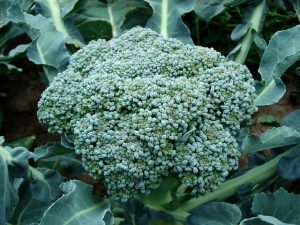Organic traffic, powered by quality content, keyword strategies, and website optimization, is a crucial component of digital marketing that fosters long-term business success. To boost search engine rankings and attract more organic visitors, websites must deliver valuable content, optimize for user intent, build backlinks from reputable sources, and ensure mobile-friendliness. Strategic on-page optimization, including keyword research and strategic content placement, improves click-through rates and signals search engines' relevance. Effective link-building tactics like creating exceptional content, guest blogging, and strategic partnerships build a robust backlink profile. Measuring organic traffic performance using tools like Google Analytics allows for data-driven decisions and continuous optimization.
In today’s digital landscape, understanding and generating organic search traffic is paramount for online success. This article serves as a comprehensive guide, exploring the fundamentals and immense significance of organic traffic. We delve into key factors influencing search engine rankings, providing insights on effective content strategies and powerful on-page optimization techniques. Additionally, we highlight the importance of building high-quality backlinks and offer methods to measure and analyze performance, ensuring long-term success in attracting and retaining organic visitors.
Understanding Organic Traffic: The Basics and Its Significance

Organic traffic, often referred to as natural or free traffic, is a crucial component in the digital marketing landscape. It’s the kind of traffic that comes from search engine results pages (SERPs) without any direct payment for advertising. This traffic is generated through a combination of factors like high-quality content, effective keyword strategies, and website optimization. Understanding organic traffic is essential because it forms the backbone of sustainable online growth. It’s not just about attracting visitors; it’s about attracting the right audience who are actively searching for your products or services.
The significance of organic traffic lies in its longevity and potential for conversion. Unlike paid advertising that stops as soon as the budget runs out, organic traffic can build over time as you consistently deliver valuable content and experiences. This not only boosts your online presence but also fosters trust with your audience, ultimately leading to higher engagement and conversion rates. In today’s competitive digital era, mastering organic search traffic generation is a game-changer for any business looking to thrive in the long term.
Key Factors Influencing Search Engine Rankings

Search engine rankings are significantly influenced by a multitude of factors, all working in harmony to determine where a website appears in search results. One of the most crucial aspects is organic traffic. Google and other search engines prioritize websites that offer valuable content tailored to users’ queries. This means creating comprehensive, informative, and engaging content that satisfies the intent behind search terms is essential for boosting rankings and driving more organic traffic.
Other key factors include backlinks from reputable sources, which act as votes of confidence in the eyes of search engines. The quality and relevance of these links play a significant role in establishing a website’s authority and trustworthiness. Additionally, site speed, mobile-friendliness, and user experience all contribute to rankings. Optimizing these elements ensures that search engines recognize your site as high-quality and worthy of a higher position in results, ultimately increasing the likelihood of attracting more organic traffic.
Content Strategy for Attracting Organic Visitors

To attract and retain organic traffic, a robust content strategy is essential. It involves creating valuable, relevant, and consistent content that resonates with your target audience. This includes identifying keywords used by your potential visitors and incorporating them naturally into your writing—a practice known as keyword optimization. By offering insightful, engaging, or entertaining content, you encourage users to visit, stay longer, and interact, signaling to search engines that your site is a valuable resource.
Regularly updating your site with fresh content also plays a significant role in maintaining and growing organic traffic. This could mean publishing blog posts, creating how-to videos, or offering downloadable resources. The key is to ensure each piece of content offers something unique and beneficial, increasing the likelihood of it being shared, linked to, and ultimately discovered by your target audience through search engine results pages.
On-Page Optimization Techniques to Boost Visibility

To enhance visibility and drive more organic traffic, on-page optimization techniques are crucial. This involves optimizing individual web pages to rank higher in search engine results pages (SERPs). Key strategies include keyword research and strategic placement, ensuring relevant and valuable content that satisfies user intent. Well-optimized meta titles, descriptions, headers, and alt text not only improve click-through rates but also signal to search engines the relevance of the page. Internal linking also plays a vital role by guiding users and search engine crawlers through your site’s tapestry, encouraging deeper engagement and broader visibility.
Additionally, images optimized with descriptive file names and relevant alt tags contribute to faster loading times and better accessibility, which are favored by both users and search engines. Mobile-friendliness is another critical aspect, as the majority of today’s web traffic comes from smartphones and tablets. Adhering to best practices for on-page optimization ensures your site presents itself as a vibrant, accessible, and authoritative source of information, enhancing its chances of ranking higher in organic search results.
Building High-Quality Backlinks for Long-Term Success

Building high-quality backlinks is a cornerstone of sustainable organic traffic generation. These links act as votes of confidence from other websites, telling search engines that your content is valuable and worthy of reference. To cultivate these backlinks, focus on creating exceptional content that naturally attracts links – informative articles, in-depth guides, or unique research are all effective strategies. Engaging with industry influencers and fellow content creators can also open doors to collaborative opportunities, like guest blogging, which further bolsters your link profile.
Beyond content creation, active link building through strategic partnerships, broken link building, and resource page outreach can amplify your efforts. Remember, quality trumps quantity; a handful of high-authority backlinks from reputable sources carry more weight than dozens from lesser-known websites. This long-term strategy not only drives organic traffic but also establishes your website as an authority in your niche, ensuring ongoing success in search engine rankings.
Measuring and Analyzing Organic Traffic Performance

Measuring organic traffic performance is a crucial aspect of understanding your website’s visibility and attracting the right audience. By utilizing analytics tools, such as Google Analytics, you can gain valuable insights into how effectively your content resonates with search engines and users. Key metrics to track include bounce rate, average session duration, and pages per session, which provide a comprehensive view of user engagement.
Regular analysis allows for data-driven decisions, helping to identify high-performing content and areas for improvement. For instance, if you notice a high bounce rate from specific keywords, it might indicate that the content doesn’t fulfill user expectations. Conversely, long session durations suggest that visitors are finding value in your organic traffic sources, encouraging further exploration and optimization of these channels.
